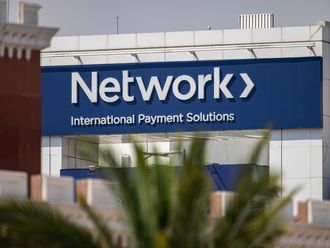Dubai: Emirates Islamic (EI), the Sharia-compliant arm of Dubai’s largest lender, plans to complete a Dh1.5 billion ($408 million) fund-raising from existing shareholders by early December, its chief executive told Reuters on Monday.
EI, owned by Emirates NBD, is the latest Gulf lender seeking to boost its capital after a period of strong lending and amid weakening economic growth. Banks are also beefing up reserves to meet new global regulations.
Jamal Bin Ghalaita said EI was not expecting a pick up in the banking market until the second half of 2017 at the earliest, once an upswing in oil prices happens.
EI announced plans for the rights issue on Thursday, saying it would increase its paid up share capital to Dh5.43 billion from Dh3.93 billion.
After raising $250 million from an Islamic bond tap in August, Ghalaita said the bank had no further plans to raise money from the market.
“All Islamic banks have been growing their assets, hence all of them have increased their capital, including EI,” he said in an interview.
“We are also going though Basel III and IFRS 9, all of this requires you to allocate more capital,” he added, referring to international banking regulations.
Banks in the UAE are gearing up to fully comply with Basel III by the end of 2018, while lenders globally are preparing for a change to international accounting rules, known as IFRS 9, governing bad loans due to take effect on January 1, 2018.
EI’s capital adequacy ratio stood at 13.2 per cent at the end of 2015, above the 12 per cent minimum required by the UAE Central Bank.
Banks in the Gulf have suffered as a slump in oil prices has prompted governments to reel in spending in a bid to plug huge budget deficits. EI, which has recorded falling net profits for the past three quarters, is due to report third-quarter results later this month.
Bin Ghalaita said the outlook remained uncertain. “Generally, 2017 will be a tough year until we see how the commodity market reacts,” he said.
“By the middle of 2017 we are expecting the commodity market to recover and expect people to be tight on spending until then.
We are financing retailers, manufacturers, and if they are growing we will be able to finance it.” Bin Ghalaita said EI planned no further job losses after some cuts mainly within the department servicing small and medium-sized enterprises.
Reuters reported in August EI had laid off more than 100 people. Earlier in the year, it shed around 200 jobs.












